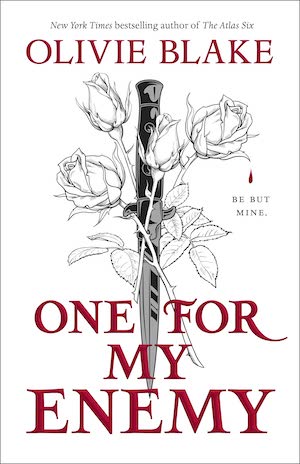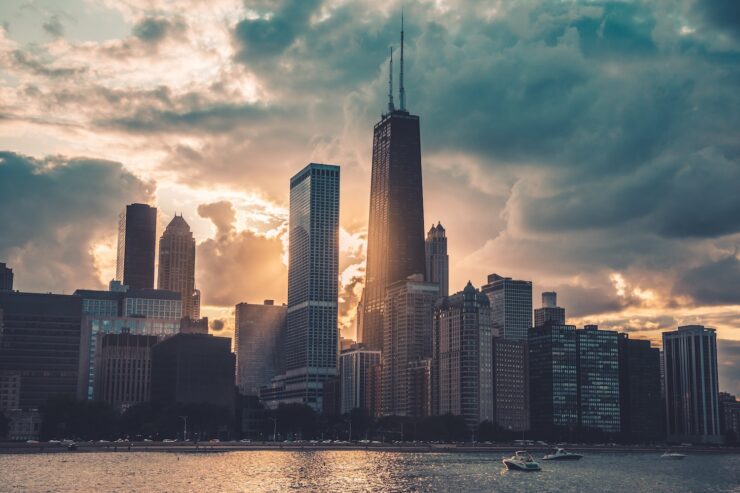The Chicago skyline may as well be threaded into the double helix of my DNA. I’ve got the city’s iconic flag tattooed on my forearm. I still call its tallest skyscraper “the Sears Tower” because it feels right. On the first days of summer-esque weather, I bike along the Lake Shore Path and bask in the high spirits of the city surrounding me. I guess you could say I’m one of those Chicagoans—the type that loves my city beyond measure. When I travel, I compare every location to my home, and the conclusion is typically: “It’s nice, but it’s no Chicago.”
Why do I tell you all this? Well, first, I want you to understand the article you’re about to read is laced with bias. I love my city, and I won’t be shy about it. Second, I tell you in case this feeling resonates, regardless of where you’re from. If you adore the city you call home, I think the idea I’m about to explore will resonate with you as it does for me.
And what idea is that, exactly?
The utter joy and crushing despair of seeing your city in an SFF novel.
I’m sure there are countless New Yorkers and Londoners who know this mixed bag of emotions all too well. Fantasy and sci-fi books set in the real world seem drawn to the magnetic metropolitan forces of NYC or London. My city, Chicago, isn’t quite so common in the SFF realm—as is the case with many other places, big and small. So when it does show up, my initial reaction is almost always a big smile, possibly some goosebumps if the author mentions a favorite neighborhood or proffers a great description of an iconic landmark. Then comes the sense of despair.
Maybe “despair” is too strong a word for what I feel—I don’t discover a book is set in Chicago and immediately find myself torn between undulating extremes of happiness and sorrow. Instead, the despair is kind of a preemptive reaction; it comes from the heavy weight of expectation. I know, from the second I recognize a Chicago landmark or see the city’s name on the page, that I will measure the book against my knowledge and understanding of my hometown, and it may be found wanting…
Buy the Book


One for My Enemy
Or at least, that’s how I used to feel. Lately, thanks to the help of some excellent SFF books set in Chicago, I’ve started to shed my preconceptions and enjoy the spirit of my city, whether or not the book in question gets every detail painstakingly correct.
Take Dark Matter by Blake Crouch (soon to be an Apple TV series adapted by the author). The book’s primary setting is Chicago, and Crouch immediately takes some liberties. He places the Village Tap—a very real bar in Roscoe Village—and places it closer to Logan Square, where protagonist Jason Dessen lives with his family.
At first, I balked. Sacré Bleu! How could a bar that exists in Spot A be fictionalized into Spot B? I was exasperated by the narrative choice when I first read the book, but soon came to question my knee-jerk reaction. What was I thinking—did it really matter, in the grand scheme of things? Village Tap is a fine establishment, and frankly, it would fit just fine in Logan Square as it does in Roscoe Village. It served the story and let Crouch blend the atmosphere of a few Chicago bars into a single location.
I suppose the primary reason for my initial ire (which, again, didn’t last very long— gotta give myself some credit) is that Dark Matter exists in a hard sci-fi space. The Chicago (and broader world) of the novel is remarkably similar to our reality, with one big sci-fi twist (which I don’t care to spoil here). The more realistic a book is, the more my alarm bells go off when something doesn’t fit or feel quite right. Crouch soon reminded me, both figuratively with the book and literally in his Goodreads response linked in the paragraph above, that a setting can be inspired by a city. It can embody the spirit of a place without being a one-to-one recreation of its real-world counterpart. Thanks to Dark Matter, the joy I felt at Chicago’s starring role in a book outweighed the nit-picking I might have previously given so much attention to.
From there, my world opened up! I revisited The Dresden Files after a years-long hiatus. Jim Butcher’s wizard detective series makes it a lot easier to suspend disbelief. His iteration of the Windy City contains Fae, vampires, demons, and a menagerie of supernatural beings. To be fair, I’ve only read five Dresden Files books so far, but I’ve really come to enjoy Butcher’s creative use of the Windy City. Now, it’s a treat when I encounter in real life one of the locations he uses for Harry Dresden’s exploits and investigations. One savvy reader has even compiled a map of locations (or approximate locations) of many key moments from the series.
The Dresden Files leans heavily on its fantasy roots, and that makes the Chicago of the series uniquely eerie and supernatural. Beneath the tracks of the L or in the shadows of the city skyline, who knows what horrific or wondrous things you’ll find? A ghost haunting a local graveyard? Vampires lurking in abandoned buildings? Butcher packs Chicago full of new sights and always gives his fantasy version of the metropolis a fun twist.
And finally, we have Ling Ma’s Severance, a book I’ve written about at length, praising its depiction of corporate work. One of the main storylines carries the novel’s protagonist on a journey through the Chicago suburbs, offering a different take on Chicagoland through a post-apocalyptic lens. After disease renders most of the global population dead or zombified (a death sentence itself), Candace Chen joins a band of survivors seeking the promised shelter of a mega-mall in the Midwestern suburbs.
Severance puts Chicago on the other side of a deadly outbreak. The book doesn’t attempt to capture a modern-day version of the city. Instead, it uses Chicago as a canvas onto which it can paint a catastrophic future. When Ma describes the shopping complex, it’s easy for me to plaster Woodfield Mall over the vision she creates. Instead of the smell of Auntie Anne’s and the colorful storefronts, we get a stark and repurposed mall where survivors eke out a meager living. Separating the city I know from my lived experience by pushing it through a fictional (though admittedly prescient) pandemic is a smart and effective way to utilize a location for narrative purposes while providing recognizable landmarks for readers who know the place well.
I owe a debt of gratitude to these three books. They took the apprehension I used to experience whenever I encountered fictionalized versions of Chicago—a swirling mess of elation and trepidation—and transformed it into eager anticipation. Rather than worrying about the potential for missed opportunities or lackluster details, I now feel excitement: How will the next SFF author that sets a book in Chicago adapt the city and its familiar spaces to align with their vision? I have no idea, but I can’t wait to find out…
Now, when I see Chicgao or one of its many famous landmarks in a fantasy or sci-fi novel, I’ll devour the book in the hopes that the author can whisk me away with their unique take on the city I adore. And on that note, I turn it over to you: Where is your favorite place in the world, and how does it fare in SFF books? And do you have any Chicago-based fiction to recommend? Let me know in the comments!
Cole Rush writes words. A lot of them. For the most part, you can find those words at The Quill To Live or on Twitter @ColeRush1. He voraciously reads epic fantasy and science-fiction, seeking out stories of gargantuan proportions and devouring them with a bookwormish fervor. His favorite books are: The Divine Cities Series by Robert Jackson Bennett, The Long Way To A Small, Angry Planet by Becky Chambers, and The House in the Cerulean Sea by TJ Klune.










